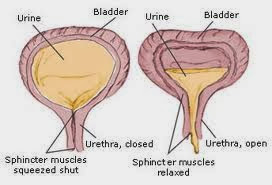This article Imbalanced Nutrition and Knowledge Deficit related to Bladder Cancer is one of the articles you were looking for? If true, you are very right here. OK here's the information on the article Imbalanced Nutrition and Knowledge Deficit related to Bladder Cancer.
Imbalanced Nutrition and Knowledge Deficit related to Bladder Cancer
Neoplasm is an abnormal collection of cells formed by cells that grow continuously on a limited basis, is not coordinated with the surrounding tissue and are not useful for the body.Cancer is a general term used to describe cellular growth disorder and is a group of diseases and not just a single disease.
Cancer is a general term that includes any malignant growth in any part of the body. This growth was not intended, parasitic and developing at the expense of a man who became the host.
Bladder cancer is a malignant tumor that is found in the bladder (nurse87, 2009)
Symptoms can include:
- Hematuria (blood in the urine).
- Burning or pain when urinating.
- Urge to urinate.
- Frequent urination, especially at night and on the next phase of difficult urination.
- Body felt hot and weak.
- Low back pain due to nerve compression.
- Pain on one side because hydronefrosis.
1. Imbalanced Nutrition: Less Than Body Requirements
related to:
- hyper-metabolic-related cancer, the consequences of chemotherapy, radiation, surgery (anorexia, gastric irritation, lack of sense of taste, nausea), emotional distress, fatigue, inability to control pain
characterized by:
- inadequate intake,
- loss of sense of taste,
- loss of appetite,
- weight down to 20% or more below the ideal,
- decreased muscle mass and subcutaneous fat,
- constipation,
- abdominal cramping.
- Showed a stable weight, normal laboratory results and no sign of malnutrition.
- Stated understanding of the need for adequate intake.
- Participate in the management of diet-related illness.
- Monitor food intake every day, whether eating in accordance with the needs of the client.
- Measure weight, triceps size and observed weight loss.
- Assess pale, slow wound healing and parotid gland enlargement.
- Encourage clients to consume high-calorie foods with adequate fluid intake. Instruct too little food to clients.
- Control of environmental factors such as foul odors or noise. Avoid foods that are too sweet, fatty and spicy.
- Create a pleasant dining atmosphere for example, a meal with friends or family.
- Encourage relaxation techniques, visualization, moderate exercise before eating.
- Encourage open communication about anorexia problems experienced by clients.
Collaboration:
- Observe laboratory studies such as total lymphocytes, serum transferrin and albumin.
- Give treatment as indicated.
- Attach a nasogastric tube for enteral feeding, balanced with infusion.
Rational:
- Provide information about nutritional status.
- Provides information about the addition and weight loss.
- Showed very poor nutritional state.
- Calories are energy sources.
- Prevent nausea and vomiting, excessive distension, dyspepsia which causes a decrease in appetite and reduce harmful stimulus which can increase anxiety.
- In order for the client to feel like being at home alone.
- To induce a feeling of wanting to eat / arouse appetite.
- In order to overcome together (with a dietitian, nurse and client).
- To determine / establish the occurrence of nutritional deficiencies as a result of the course of disease, treatment and care of the client.
- Facilitate the intake of food and beverages with maximum results and right as needed.
2. Knowledge Deficit about the disease, prognosis and treatment
related to:
- lack of information,
- misinterpretation,
- cognitive limitations.
characterized by:
- often asked,
- stating the problem,
- statement misconceptions, is not accurate in mengikiuti instruction / prevention of complications.
Goal:
- Can accurately say about diagnosis and treatment at the level of proximity ready.
- Following the procedure well and explain the reasons to follow those procedures.
- Having the initiative of changing lifestyles and participate in treatment.
- In cooperation with the furnisher.
- Review understanding of the client and family about the diagnosis, treatment and consequences.
- Determine the client's perception about cancer and its treatment, tell the client about the experience of other clients who have cancer.
- Give accurate and factual information. Answer the questions specifically, avoid unnecessary information.
- Provide guidance to client / family before following the treatment procedure, the old therapy, complications. Be honest with the client.
- Encourage clients to provide verbal feedback and correct misconceptions about the disease.
- Review client / family about the importance of optimal nutrition status.
- Encourage clients to assess the oral mucous membranes regularly, note the presence of erythema, ulceration.
- Encourage clients to maintain the cleanliness of the skin and hair.
- Avoid duplication and repetition of the client's knowledge.
- Lets do justification to errors as well as errors of perception and conception of understanding.
- Assist the client in understanding the disease process.
- Assist clients and families in making treatment decisions.
- Knowing the extent of understanding the client and client's family about the disease.
- Increasing knowledge of the client and family regarding adequate nutrition.
- Reviewing the development of the processes of healing and signs of infection and problems with oral health can affect the intake of food and beverages.
- Improving the integrity of the skin and head.
Thank you for reading the article Imbalanced Nutrition and Knowledge Deficit related to Bladder Cancer.We sincerely hope you can understand that our article Imbalanced Nutrition and Knowledge Deficit related to Bladder Cancer is taken from various sources. If the article useful Imbalanced Nutrition and Knowledge Deficit related to Bladder Cancer don't forget to share. Thank You.

Tidak ada komentar:
Posting Komentar